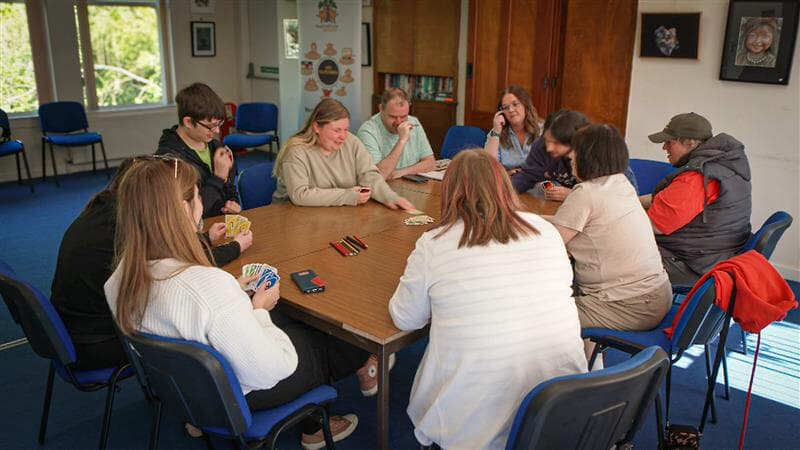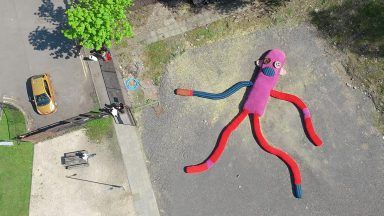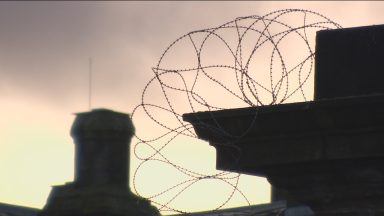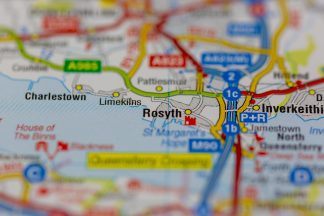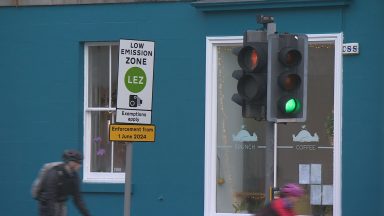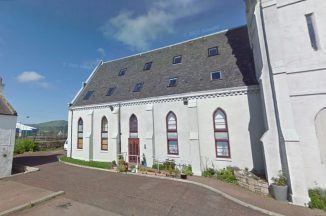At a small community centre in Dalry, a heated game of Uno is getting under way.
Around a dozen adults with learning disabilities gather weekly to socialise and learn vital life skills.
The sessions are run by Neighbourhood Networks, a charity providing social care to around 300 people at any one time across the central belt.
Manager Michelle Carlyle told Scotland Tonight: “Our service is really important for those who don’t have anybody else there for them to help them get out and build that confidence and connect to the new groups within their communities.”
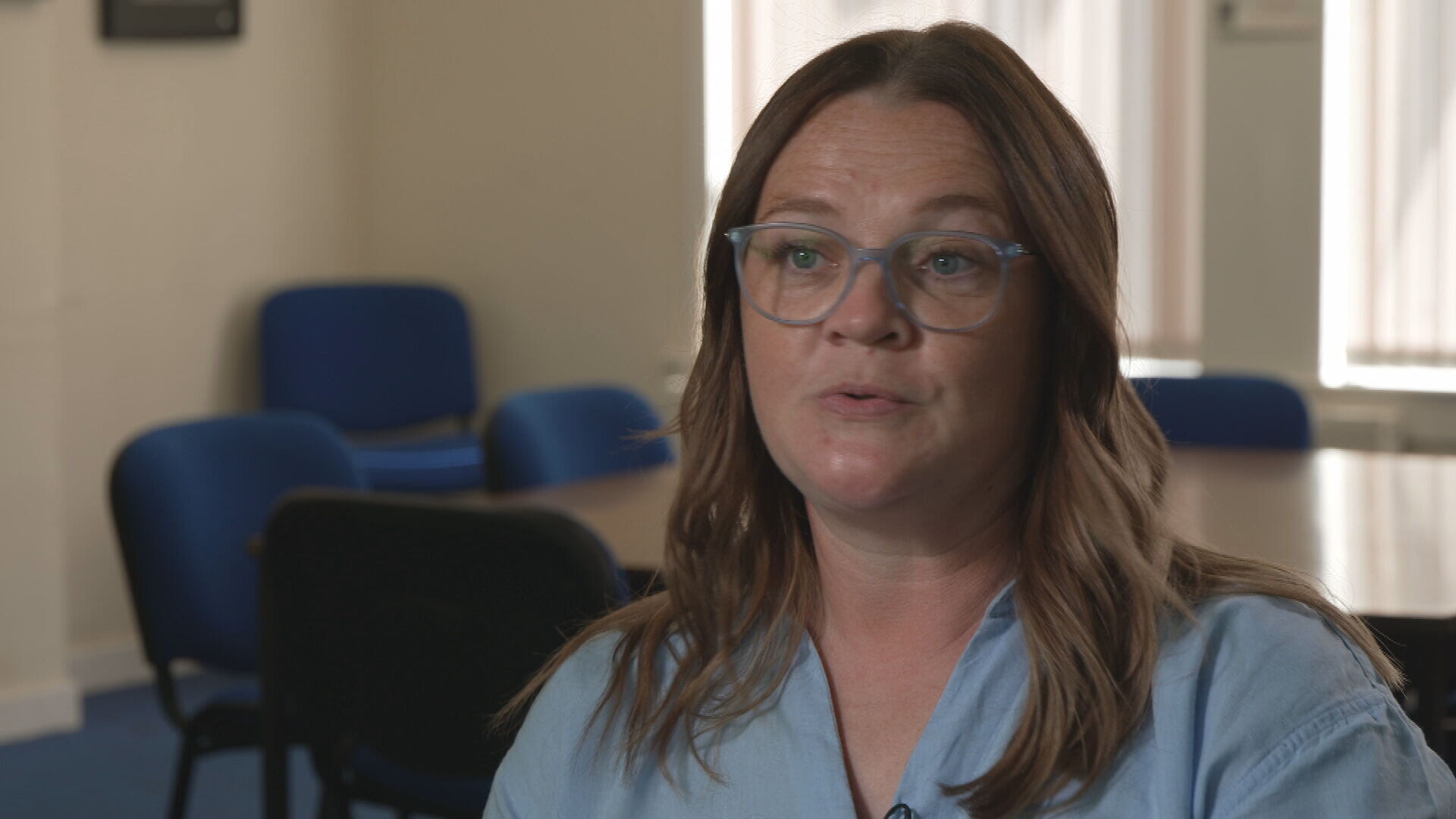 STV News
STV NewsMichelle often runs money management sessions with members by planning budgets for mock days out.
Alison is a regular at the events and says she was able to put those skills to good use on a recent trip abroad.
“I had to plan out the budget in Paris,” she explained, “So I had to do that, but I’ve [also] learned how to be more confident going out and about more, with cooking and doing other things.”
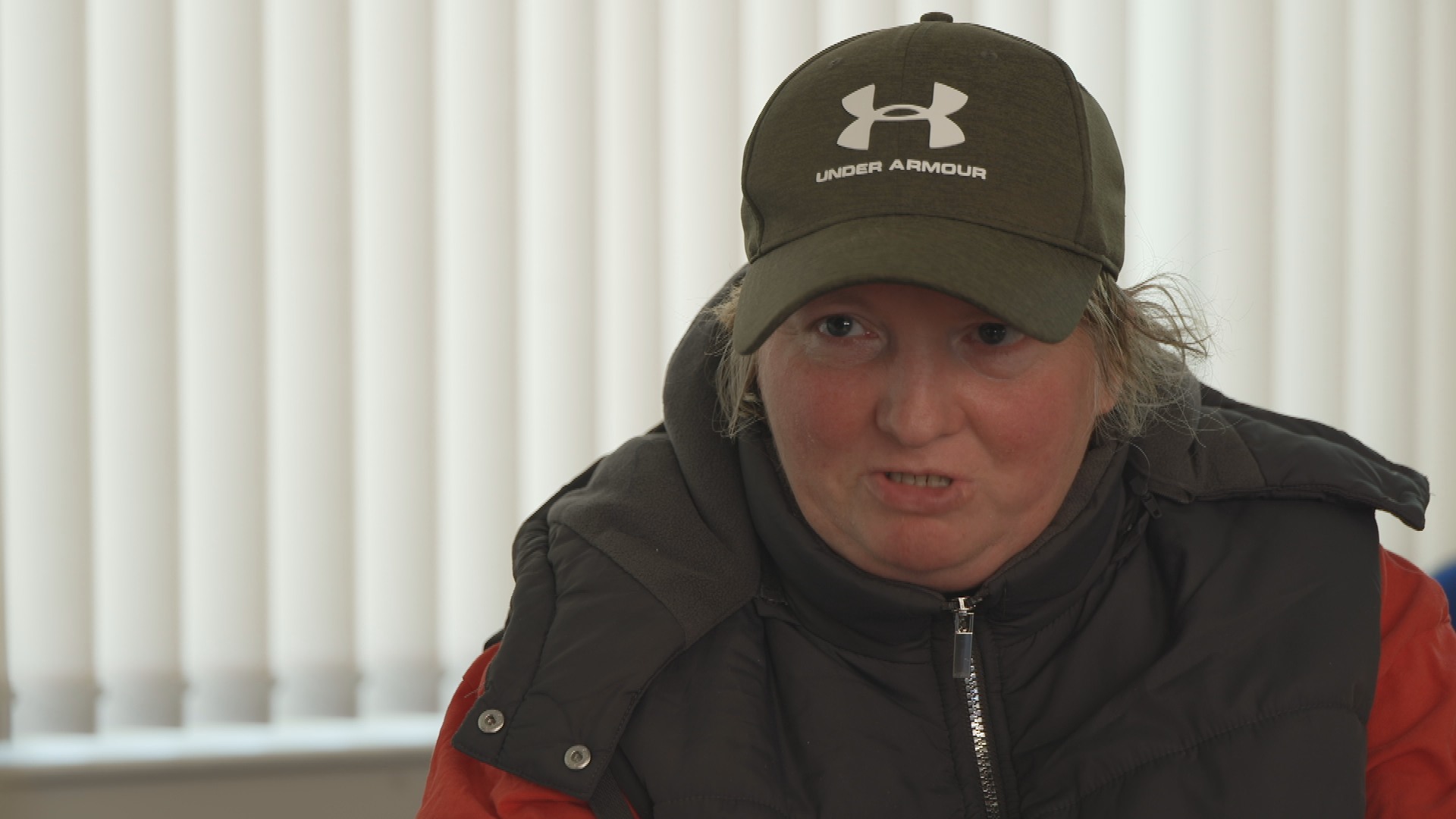 STV News
STV NewsThe Dalry group was set up five years ago during the pandemic and Michelle says it quickly became a lifeline for the members.
“Some of the members have no other support in place. So without us, some of them would really struggle to get on with life and they might become one of those statistics that are forgotten and slip through the gaps.”
Neighbourhood Networks’ chief executive Heather Calvo says there’s a lack of understanding around how far-reaching social care can be.
She told Scotland Tonight: “People might think traditionally social care is going to peoples’ houses, it’s very practical support and helping with meal preparation, maybe personal care, but social care is also helping people emotionally.
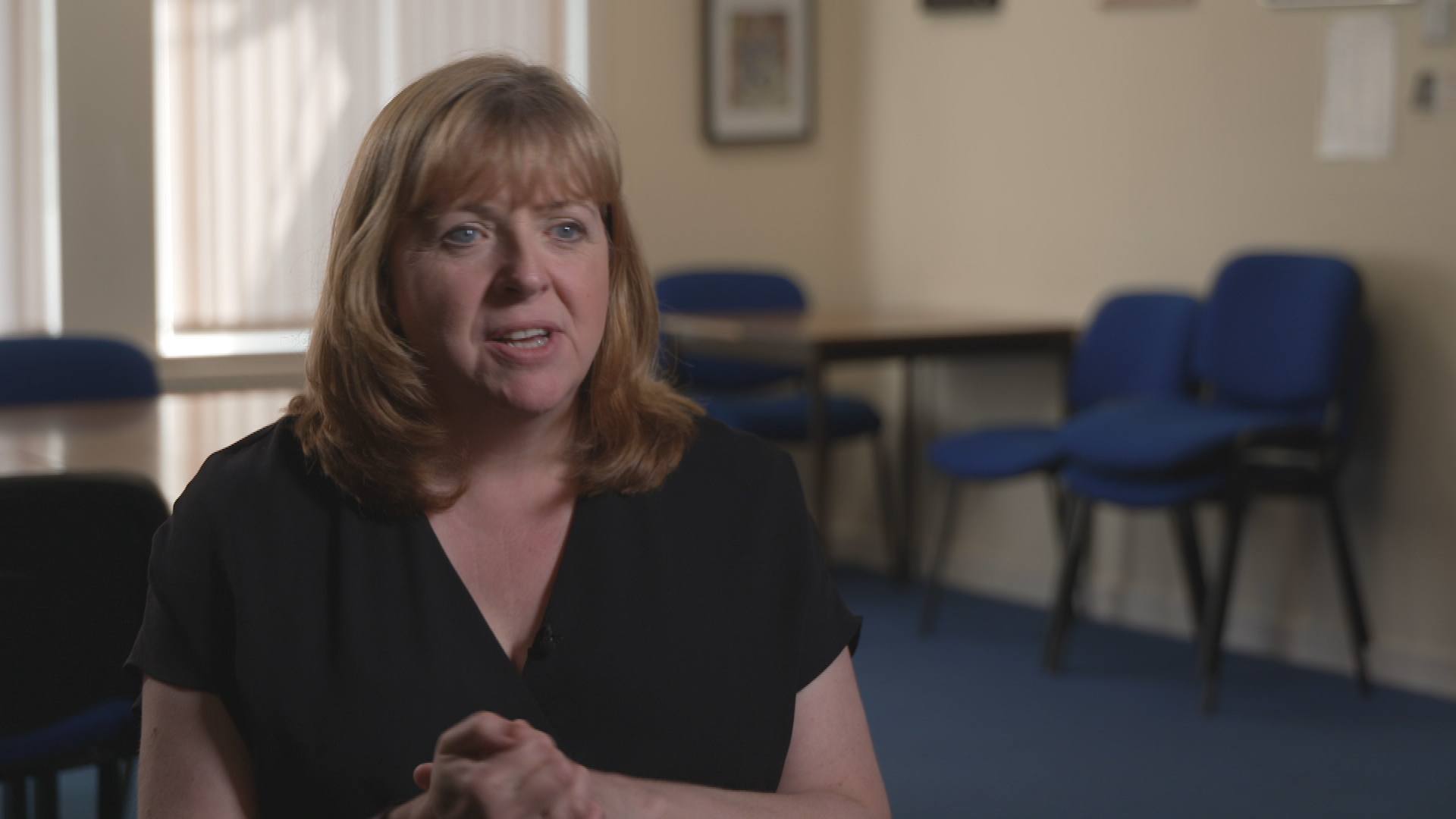 STV News
STV News“Helping people get out and about, helping people develop skills, helping people be present and able to contribute to their community.
“Without social care, the challenges that the NHS is currently experiencing would be far worse. It’s an investment, social care is an investment. It prevents people from ending up in hospital in the first place.”
But Heather says the services, often provided by the third sector, are under enormous pressure.
The UK Government has announced plans to end future overseas recruitment of care workers.
And earlier this year, there was a 1.2% increase to employers’ National Insurance contributions, along with a lowering of the threshold at which it is paid.
Heather says the impact will be huge.
“Our National Insurance bill is going up by 35%,” she said. “Given that most of our costs are staff, that’s enormous. When I heard the news about the budget last October, my jaw hit the ground and my heart sank not just for us, but for social care organisations across the piece.”
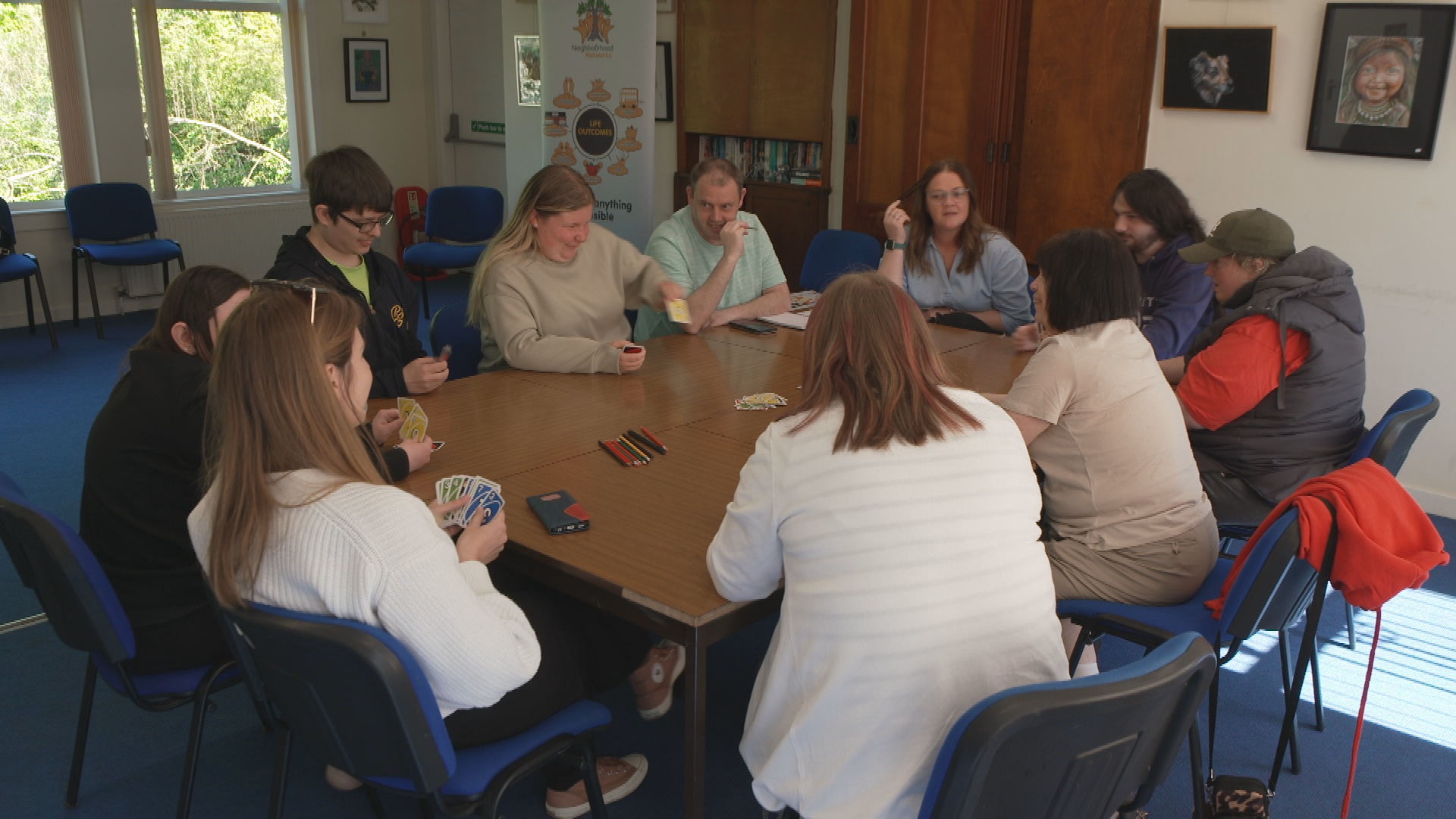 STV News
STV NewsNeighbourhood Networks is a member of the Coalition of Care Providers Scotland, which has carried out a survey centred on the outlook for the industry.
Heather said: “The statistics are stark. 57% of organisations may need to hand back contracts to local authorities because they can’t afford to deliver it. 67% of organisations might need to tap into their emergency funds this year just to get through the year, and the worst of all is 91% of organisations have said that without significant change they might not be in business in four years’ time.
“I think it’s grim. I think this is a matter of what you want to see in your community, in your society. The impact on the NHS will be huge.”
Watch the full report, Social Care Under Pressure, on STV’s Scotland Tonight on Thursday at 8:30pm.
Follow STV News on WhatsApp
Scan the QR code on your mobile device for all the latest news from around the country


